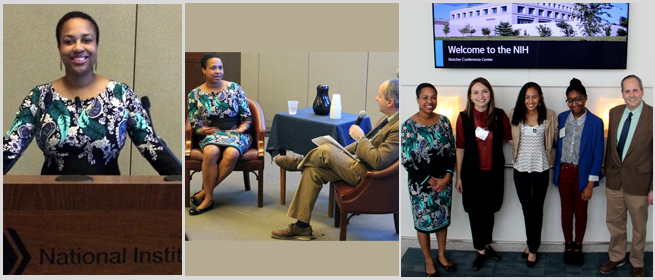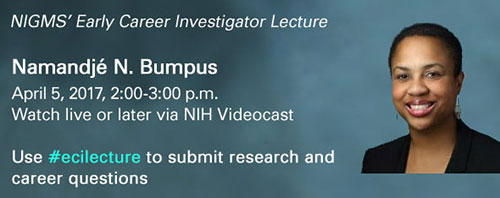I’m pleased to congratulate four members of the NIGMS community who are among the recipients of the 2019 Presidential Early Career Award for Scientists and Engineers. This award is the highest honor bestowed by the United States government to outstanding scientists and engineers who are beginning their independent research careers and who show exceptional promise for leadership in science and technology.
Continue reading “NIGMS Grantees Receive Top U.S. Award in Science and Engineering”Tag: NIGMS Grantee News
Lasker Awards Honor Three NIGMS Grantees
0 comments
We are delighted that three long-time NIGMS grantees have been recognized by the 2018 Lasker Awards. The awards highlight fundamental biological discoveries to draw attention to the importance of public support of science.
- Michael Grunstein of the University of California, Los Angeles, and C. David Allis of Rockefeller University, received the 2018 Albert Lasker Basic Medical Research Award for “discoveries elucidating how gene expression is influenced by chemical modifications of histones—the proteins that package DNA within chromosomes.” NIGMS funded Grunstein’s work on the establishment and spreading of silent chromatin from 1977 to 2012. His research led to the generation of the first histone mutations in yeast and the first demonstration that chemical modification of specific ends of histones could turn gene expression on or off. Allis identified and characterized enzymes that add, remove, and read histone modifications. His work led to the hypothesis of a histone code that, when mis-read, can lead to disease. NIGMS has funded Allis since 1988.
- Joan Argetsinger Steitz of Yale University received the 2018 Lasker-Koshland Special Achievement Award in Medical Science for “four decades of leadership in biomedical science—exemplified by pioneering discoveries in RNA biology, generous mentorship of budding scientists, and vigorous and passionate support of women in science.” Steitz’s pioneering research helped reveal the function of small pieces of RNA that are not used for making proteins. These molecules, including small nuclear ribonucleoproteins (snRNPs), help regulate gene activity. In doing so, they—like histone modifications—have a major impact on health and disease. NIGMS funded her research from 1975 to 2014. The Lasker-Koshland Award further recognizes Steitz’s long record of mentoring the next generation of scientific leaders and her effective and tireless work as an advocate for women in science.
We congratulate all of the recipients on these well-deserved honors.



